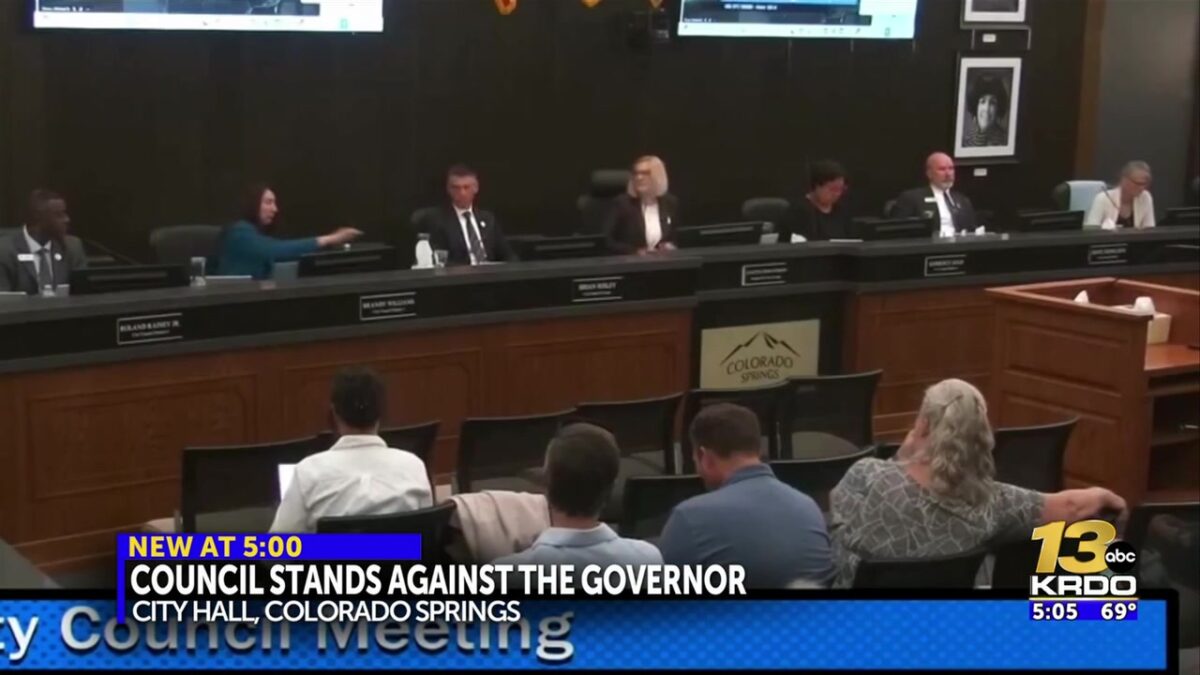Colorado Springs City Council votes to defy state housing order, potentially risking $20M in funding

Mackenzie Stafford
COLORADO SPRINGS, Colo. (KRDO) – On Tuesday, the Colorado Springs City Council decided to roll the dice on roughly $20 million in funding, according to the city’s estimates.
It comes after Colorado Gov. Jared Polis signed executive order D 2025 – 005, which includes blanket statewide housing requirements aimed at improving affordability.
The city claims that there are a handful of laws in the order that are not right for the Colorado Springs community. The only issue is that, as part of the executive order, not following these laws could put the city under noncompliance, which is a one-way ticket to getting those dollars pulled.
At a city hall meeting on Tuesday, councilmembers voted 7 to 2 on a resolution to reaffirm Colorado Springs’ home rule, which grants the city the constitutional right to make decisions in the best interest of the community, while also allowing public input and giving the city some separation from state law.
Prior to the vote, Council President Pro Tem, At Large, Brian Risley, read the resolution, explained his concerns and posed a question to his fellow councilmembers.
“I would like to place a call to my colleagues here on the dais and ask, are we going to uphold the oath that we took to defend the state constitution, or are we going to acquiesce to unfunded mandates and a one size fits all approach that usurps our constitutional right to establish local regulations?” questioned Brian Risley, Council President Pro Tem, At Large.
Many community members took to the podium to express their concerns regarding not being able to make their voices heard regarding the state laws, if enforced in compliance with the executive order.
“This state intrusion is the most serious threat our city and neighborhoods have ever seen,” a commenter representing the Historic Neighborhoods Partnership of Colorado Springs said.
The Historic Neighborhoods Partnership also encouraged the City Council to join a lawsuit filed by six other cities against the state in regards to this executive order.
Cutting occupancy limits and parking requirements are some items included in this order that the city disagrees with.
“Colorado Springs is not a neighborhood of Denver,” stated Councilman At Large David Leinweber.
A handful of councilmembers contend that this executive order is a band-aid approach for the state to try and fix affordable housing issues. They say it strips communities like the Olympic City of its constitutional right to rule over the area.
We went to the governor about these claims.
“Our focus as a state is that we need more housing to be affordable for people,” Polis explained. “And that means empowering property owners and property rights to make sure people can, for instance, build accessory dwelling units in their property.”
Local leaders in Colorado Springs previously imposed significant guidelines on the ability to build an ADU on your property.
During the council meeting, the mayor’s Chief of Staff Jamie Fabos emphasized that the Colorado Department of Local Affairs (DOLA) had reached out to the city of Colorado Springs following the signing of Governor Polis’ executive order to let them know that all local laws currently in place are in compliance with the order.
However, Fabos warned during the meeting that the city’s decision to introduce a regulation opposing the executive order could potentially place Colorado Springs in non-compliance, putting the city at risk of losing state funding.
“Should we lose any funding because of this resolution, it’s important for the people to understand that it was the actions of this council that impacted the loss,” Fabos said.
When asked to explain where the funding estimates were coming from, Fabos gave this explanation.
“The departments that we foresee being impacted are city engineering for $2.5 million, housing and homeless response by $1.2 million, municipal court by $150,000, stormwater by $500,000, traffic engineering $1.4 million, and transit by $4.6 million,” Fabos said. “As far as pending applications of money we’re planning or expecting to receive, that is where we see additional funding for transit to the tune of $8.9 million. And then a small bucket for parks, design and development of $300,000.”
During public comment, other concerned citizens urged the council not to compromise the city’s values for the sake of state grants.
The official list of which cities are complying comes out at the start of October.
In the meantime, the Colorado Springs City Council has affirmed they stand by home rule and could take legal action against the state if any money is pulled from the city because of this.
On Tuesday, a spokesperson for the Governor’s Office sent KRDO13 the following statement:
“We want to work with Colorado Springs to meet the moment and do what’s right by Coloradans, which is build more housing to reduce housing costs. Coloradans are demanding action from our leaders to bring down housing costs. Our state has a housing shortage, and Governor Polis and the General Assembly have passed common-sense laws that break down barriers to housing. The Governor is proud of this work, appreciates the partnership and collaboration with so many local governments, and looks forward to seeing its positive impact in communities across the state.”